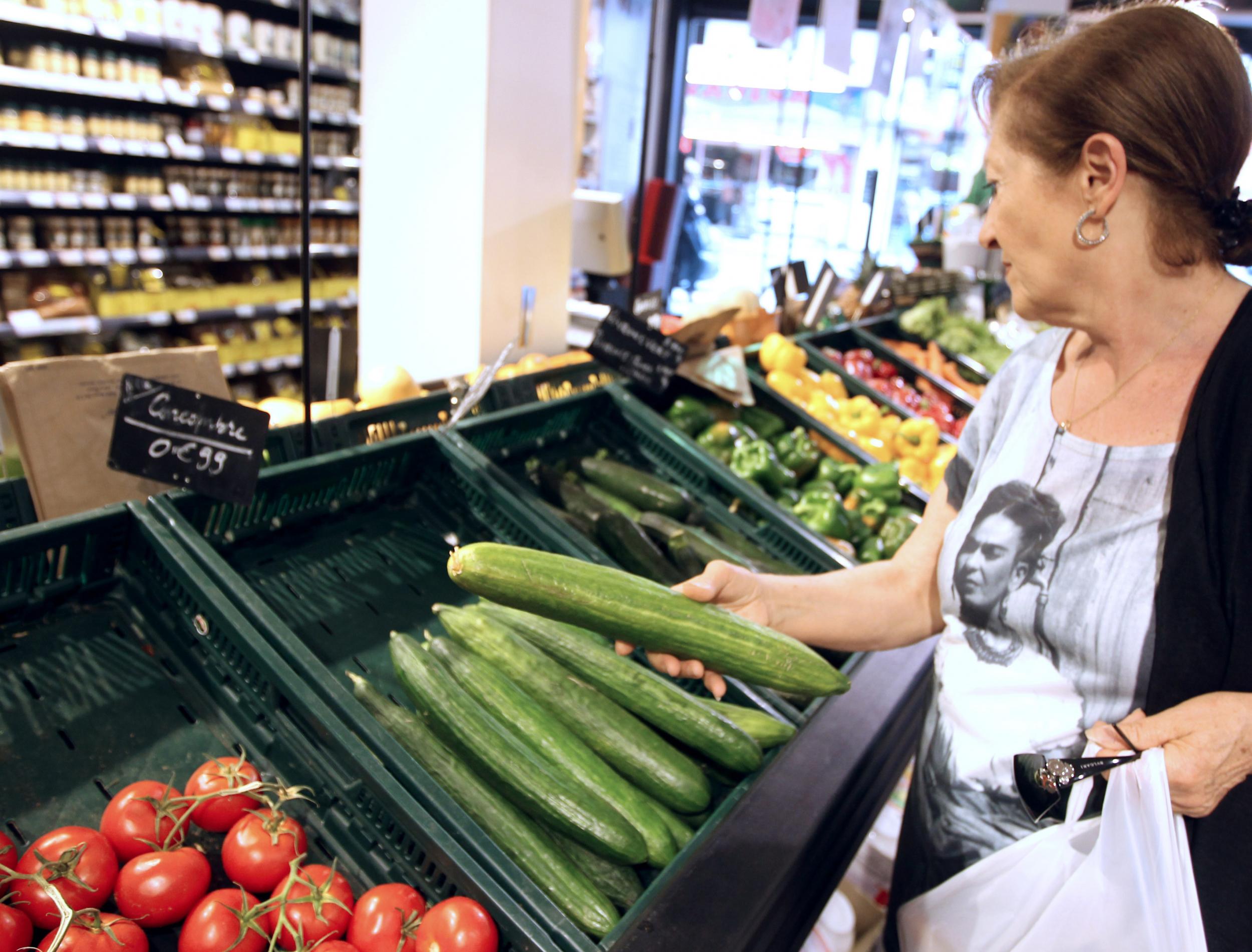Brexit: 'Real risk' UK could run out of some foods after EU exit, government warned
Theresa May accused of 'serious policy failing on an unprecedented scale' by academics

Your support helps us to tell the story
From reproductive rights to climate change to Big Tech, The Independent is on the ground when the story is developing. Whether it's investigating the financials of Elon Musk's pro-Trump PAC or producing our latest documentary, 'The A Word', which shines a light on the American women fighting for reproductive rights, we know how important it is to parse out the facts from the messaging.
At such a critical moment in US history, we need reporters on the ground. Your donation allows us to keep sending journalists to speak to both sides of the story.
The Independent is trusted by Americans across the entire political spectrum. And unlike many other quality news outlets, we choose not to lock Americans out of our reporting and analysis with paywalls. We believe quality journalism should be available to everyone, paid for by those who can afford it.
Your support makes all the difference.Brexit poses “real risks” to the cost, availability and quality of the UK's food supplies, which the Government has shown little sign of addressing, researchers claim.
A report from food policy specialists has warned the forthcoming break from Europe will lead to “chaos” unless ministers establish a clear plan on how a new food system will operate.
Currently, the EU props up a huge chunk of Britain's food supply - providing 31% of its food - which the authors suggest cannot be walked away from without provisions in place.
The researchers from three UK universities launched the 86-page review into how Brexit could impact the country's food and farming as the Government gears up for the next round of negotiations with Brussels.
It cites recent research by the British Retail Consortium that the absence of a trade deal could push the price of imported food up by 22%.
Stability and security which is enjoyed in both the price and supply of food is partly product of EU-wide safety standards, the authors warn.
Even a “soft” departure from Europe, in which the UK will remain in the single market or customs union, could badly affect the food and farming industries, they add.
Author Tim Lang, a professor from City University in London, accused the Government of a “serious policy failing on an unprecedented scale” for its handling of the situation in the run-up to Brexit.
Ahead of the departure deadline, there are thousands of pieces of legislation concerning food which require consideration, covering areas such as agriculture and fisheries.
Mr Lang said: “The Government has provided next to no details on agriculture and fisheries, and there has been total silence on the rest of the food chain where most employment, value adding and consumer choice are made.
“With the Brexit deadline in 20 months, this is a serious policy failure on an unprecedented scale. Anyone would think they want a drop into the World Trade Organisation abyss.”
He added: “At least the UK entered World War Two with emergency plans. No-one has warned the public that a Food Brexit carries real risks of disruption to sources, prices and quality.”
Their findings, published by the Science Policy Research Unit at the University of Sussex, identifies 16 issues which it urges Prime Minister Theresa May to consider.
These include a “clear integrated plan for UK food”, new legislation to “replace 4,000 pieces of EU law relating to food” and subsidies to cover the EU's Common Agricultural Policy, which the UK is expected to leave.
It also warns that a drain on labour from the continent could rattle the production of food, with 35% of food manufacturing workers said to come from the EU.
The report, which is based on more than 200 sources, continues: “Prices, which are already rising and likely to rise more, will become more volatile, especially harming poor consumers.”
Negotiations over the nature of Britain's divorce from the continent will continue on Monday as Brexit Secretary David Davis travels for talks in Brussels.
In the briefing paper released on the eve of the visit, Mr Lang, alongside co-authors Terry Marsden, of Cardiff University and Erik Millstone from the University of Sussex, a call is made for the public to pressure the Government into making a “new statutory framework for UK food”.
Mr Marsden said: “The UK's food system already faces unprecedented challenges on environment and jobs - we see real dangers that these are already being dislocated by Brexit uncertainties.”
Mr Millstone said: “Since the Brexit referendum, UK food and agricultural policy has been in chaos.
“Not only have ministers yet to develop a strategy or make decisions, they have not even grasped the issues about which urgent decisions are needed.
“Unless things change rapidly, and in line with our recommendations, the UK will not only have policy chaos, the food system itself will become increasingly chaotic.”
A spokeswoman for the Department for Environment, Food and Rural Affairs said: “Leaving the EU will provide our hugely successful food and drinks industry with new opportunities to expand and flourish.
“When we leave we are determined to benefit from tariff-free trade for our goods that is as frictionless as possible.
“But we also want to provide stability for the sector when we leave the EU - which is why the Repeal Bill will make sure the laws and rules we have will, so far as possible, still apply and why our Agriculture Bill will make sure farmers can continue to compete domestically and on the global market.”
Press Association
Join our commenting forum
Join thought-provoking conversations, follow other Independent readers and see their replies
Comments